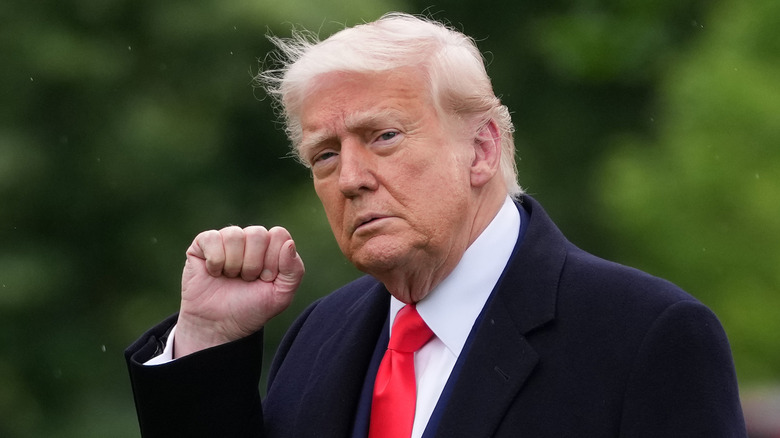Trump Administration Continues Imposing Iran Sanctions for Third Day as Nuclear Talks Proceed
May 14 (UPI) —
On Wednesday, for three consecutive days, the United States imposed sanctions on Iran as the Trump administration seeks to broker a fresh nuclear weapons agreement with the nation in the Middle East.
The disciplinary actions enforced by the
Treasury Department
Secondary sanctions refer to penalties imposed on third parties for engaging with entities, individuals, and nations that have already been identified and targeted.
The sanctions target six individuals and 12 entities in China and Iran accused of aiding Tehran source the manufacturing of critical materials used in the Islamic state’s ballistic missile program, specifically carbon fiber materials used in the construction of intercontinental rockets.
The State Department spokesperson Tammy Bruce explained in
a statement
that Iran is “heavily reliant on China to conduct its malign activities in the Middle East.”
The targets operate alongside the U.S.-sanctioned elite Islamic Revolutionary Guard Corps.
“The United States cannot allow Iran to develop intercontinental ballistic missiles,” Treasury Secretary Scott Bessent said in
a statement
.
“The Iranian regime’s relentless and irresponsible pursuit of advanced ballistic missile capabilities, including its efforts to indigenize its production capacity, represents an unacceptable threat to the United States and the stability of the region.”
The sanctions are the third batch of Iran-targeted punitive measures that the Trump administration has imposed this week as it engages in negotiations with Iran on a new agreement aimed at preventing Tehran from securing a nuclear weapon — a goal long held by President Donald Trump.
In 2018, during his initial term as President of the United States, Trump imposed sanctions on Iran and withdrew the country from an important international agreement established under the Obama administration, describing it as fundamentally flawed.
He pursued a so-called maximum pressure campaign of sanctions and other punitive measures, but failed to coerce Iran back to the negotiating table, and it instead advanced its nuclear weapons capability to the point the U.S. government
estimated
in 2022 that it would need just a week to produce enough weapons-grade highly-enriched uranium for a nuclear weapon.
In February, Trump reintroduced his maximum pressure strategy, encompassing additional rounds of new sanctions.
The United States and Iran have had four recent negotiations on a new deal, but there does not appear to be a fifth round scheduled yet.
Trump administration officials have said a deal would see Iran dismantle its three enrichment facilities, but Iranian officials have said it will not stop enriching uranium but would be open to restrictions.
Trump is in the Middle East this week for a four-day trip, and has repeatedly voiced optimism that a deal can be made.
“I sense that things will turn out well. I believe it’s destined to succeed. Regardless of how you look at it, we can be certain that it will pan out,” Trump stated during his speech.
a press conference
Wednesday in Doha, Qatar.
Later to
journalists on board Air Force One
He was clearer and more straightforward with his threats directed at Iran.
“Whether they like it or not, this situation is straightforward. This outcome will occur regardless of their stance. We cannot allow them to possess a nuclear weapon. Therefore, we will proceed amicably, or alternatively, with extreme hostility, which would certainly be unpleasant,” he stated.
The Trump administration claims it has imposed sanctions on over 250 individuals, organizations, and ships linked to Iran and its allies since February.






